
Warren, Booker Press Bed Bath & Beyond on Worker Severance Pay
Senators Elizabeth Warren and Cory Booker are pressing Bed Bath & Beyond Inc. on an earlier move to
2023-07-06 20:23

Travel agency Booking to defend ETraveli deal at July 7 EU hearing
By Foo Yun Chee BRUSSELS Online travel agency Booking Holdings will on Friday try to convince European Union
2023-07-06 18:25
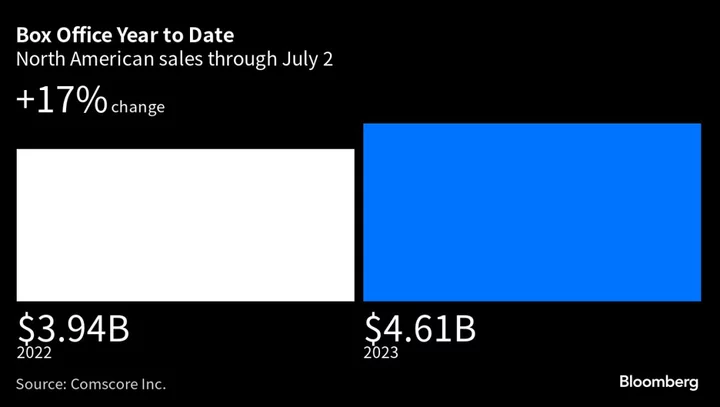
Tom Cruise, Barbie Are Hollywood’s Last Hope for Summer Success
Indiana Jones and the Dial of Destiny, the fifth film in the Walt Disney Co. series about a
2023-07-06 17:58
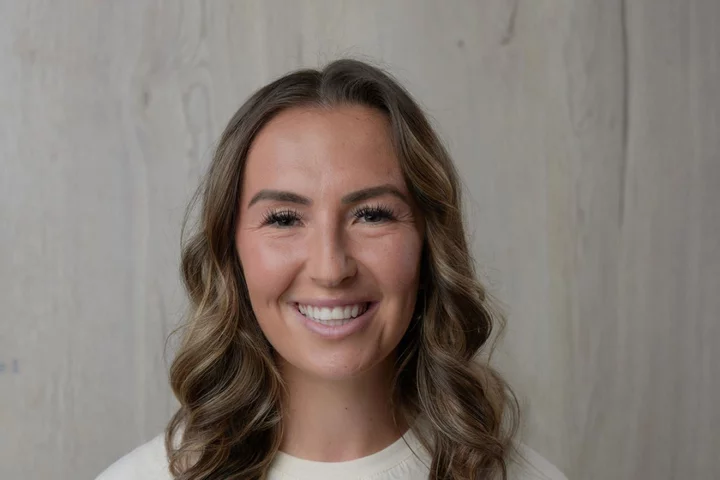
Lioness Katie Zelem: Nerves are good – it’s just about channelling them the right way
Manchester United star Katie Zelem wants one thing if England win the World Cup: Oreo milkshakes. “After games, I like to have an Oreo milkshake. That’s my go-to thing – so simple and easy, but I just love it. So, if we win, I will have a lot of Oreo milkshakes,” Zelem, 27, says with a laugh. But if Oreo milkshakes are Zelem’s top priority after she’s played, what fuels her before a match? “Before games, I’ll always eat pasta. I lived in Italy for a year, so pasta is one of my favourite things and [living in Italy] really gave me inspiration for different types, rather than just the basic stuff.” Training for a major tournament is no small feat, and combined with nutrition, camp before the tournament will be intense.“Obviously, people are all at different stages of [fitness]; some finished the league a bit earlier, and some played more minutes than others, so it’s about getting on the same page, and then ramping it up. It’ll be running, training, gym, everything you can think of.” Facing disappointment when she was not selected for the Euros team, the fresh Lioness has worked hard to get the call-up.“Last year, with the Euros, it didn’t quite go to plan, so I’m so proud of the season I’ve had. We’ve got our rewards by being selected to represent England at a World Cup,” Manchester-born Zelem divulges. “My first major tournament and I’m so excited.” But waiting for the news as to whether she would be heading to Australia and New Zealand, where the Women’s World Cup is taking place this summer, was nerve-wracking. Zelem didn’t want to miss her shot again. “I was actually at home, waiting,” she says. We knew we were going to get a FaceTime call, so it was an anxious morning for everyone.” Heading to her first World Cup, there are bound to be some nerves. “It is a good thing to feel nervous. You’re out. You’re at a World Cup. It should be a little bit nerve-wracking, playing with and against the best players in the world. Nerves are good. It’s just about channelling them in the right way,” Zelem adds calmly. Zelem is looking forward to being reunited with legendary Lioness, fellow midfielder and Barcelona player, Keira Walsh. “I do love joining up with the girls and playing with everyone, but Keira Walsh is a really good friend of mine and I have known her for about 15 years. We played together at the youth age groups a lot, we have done a lot of training camps in England,” the footballer explains. “She moved, and went from being on the doorstep to a totally different country. So, there’ll be a nice reunion at our first major tournament together.” Of course, there will be some noticeable players missing in Beth Mead and Leah Williamson, as ACL injuries have ravaged teams all over the world this season. “One or two is unlucky, but I think so many is just crazy. It certainly needs to be looked at – whether it’s our training load or the changes in play in minutes. As you see the women’s game rise and grow, the expectations become to play more games and have less recovery,” Zelem notes. It means the Lionesses of the Euros have had a shake-up. The new squad is missing its captain and top scorer, but Zelem and the rest of the team are still dreaming of World Cup victory. Katie Zelem, England Lioness and Manchester United Captain, is the brand ambassador for the healthy recipe box service Green Chef which is all about healthy living, your way.
2023-07-06 17:23

This is the lesser-known symptom of Alzheimer’s that could affect drivers
As revealed by TV presenter Fiona Phillips this week, anxiety and brain fog could be symptoms of Alzheimer’s disease – but people are being warned of another lesser-known symptom that could affect drivers the most. It comes after the former breakfast TV host, 62, spoke publicly for the first time about her Alzheimer’s disease diagnosis, which she received 18 months ago. Phillips, who is currently taking part in a drug trial that is hoped could revolutionise treatment for the illness, said she wishes to end the stigma surrounding Alzheimer’s. According to the Alzheimer’s Association, one of the symptoms that could be related to the onset of the disease is trouble understanding visual images and spatial relationships. It said: “For some people, having vision problems is a sign of Alzheimer’s. This may lead to difficulty with balance or trouble reading. “They may also have problems judging distance and determining colour or contrast, causing issues with driving.” This is not the same as having vision problems or changes related to cataracts, which is a typical age-related change. Other early signs and symptoms highlighted by the organisation include memory loss that disrupts everyday activities, such as forgetting information that one only recently learned; experiencing challenges in planning or solving problems; having difficulty taking tasks that are usually familiar; and losing track of dates, seasons or the passage of time. People living with Alzheimer’s may also develop new problems with words in speaking or writing, and may have trouble following or joining a conversation. Misplacing objects and losing the ability to go over their steps to find something is also a common sign of early disease, as is poorer judgement and withdrawal from work or social activities. Phillips said she began to realise something was wrong when she developed “crippling anxiety” towards the end of 2021 and initially thought it was related to menopause. She was put on HRT to treat menopause symptoms, which led to some improvement, however, Phillips’ “brain fog remained”, her husband Martin Frizell said. After months of cognitive tests and a lumbar puncture to asses spinal fluid, Phillips was diagnosed with Alzheimer’s disease. She told The Mirror: “This disease has ravaged my family and now it has come for me. And all over the country there are people of all different ages whose lives are being affected by it – it’s heartbreaking. “I just hope I can help find a cure which might make things better for others in the future.” She is taking part in a medical trial at University College Hospital (UCH) for a drug called Miridesap, which is administered three times a day with tiny needles. Scientists hope the drug can slow or even reverse the disease. Phillips added: “There is still an issue with this disease that the public thinks of old people, bending over a stick, talking to themselves. “But I’m still here, getting out and about, meeting friends for coffee, going for dinner with Martin and walking every day.” In 2022, dementia and Alzheimer’s were named by the Office for National Statistics as the leading cause of death in the UK. Last year, they accounted for 65,967 deaths, up from 61,250 the year before. Read More The Barbie press tour has finally rescued Margot Robbie’s red carpet reputation Woman exits plane after tirade about passenger who is ‘not real’: ‘Final Destination vibes’ Fans mistake Jennifer Garner and Ben Affleck’s daughter Violet, 17, for her mother in new photos
2023-07-06 16:24

Disability Pride Month: Motor neurone disease diagnosis spurred us on to get married
Getting married wasn’t “on the books” for London couple Craig Pollard and Alex Herd for a long time. But that changed when Alex got diagnosed with motor neurone disease (MND) in 2021, aged 30. “We decided to get married as a bit of a consequence of Alex’s diagnosis,” explains Pollard, 35. “It wasn’t something that was on the books for us before, especially as being gay, marriage wasn’t available to us when we were younger, so wasn’t necessarily something we’d aspired to. “But then thinking about the legacy we wanted and how much time we had together, we saw it as a good way of bringing our families together and celebrating something really positive in our life.” MND affects nerves in the brain and spinal cord which send signals to muscles. There is currently no cure, so as muscle loss gets worse over time – affecting movement, speech, swallowing and breathing – it eventually leads to death. It’s uncommon and mostly affects people in their 60s and 70s, although as Herd’s diagnosis shows, MND can occur in younger adults too. The charity Challenging MND, which helps people with MND, has the ‘opportunity to create amazing memories’, funded the couple’s big day last year – a fabulous festival-inspired party officiated by drag queen Just May from RuPaul’s Drag Race UK Season 4. They had already been together for a decade, so the wedding was a “celebration of all the things we’ve enjoyed together over the last 10 years”, Pollard notes (plus “lots of glitter and sparkle – it was perfect”). It was also the last time Herd went a full day without using a wheelchair. “So it was the very last moment we possibly could have done that,” adds Herd, now 32. “And we can look back at that as a really special day.” He first started noticing symptoms in early 2021 – muscle twitching then weakness in his hands and arms, before his legs became increasingly affected. Herd used a manual wheelchair for a while but recently switched to an electric one. “That’s changed my life quite a lot,” says Herd. “While I was in the manual wheelchair and Craig was pushing around, I sort of felt like I didn’t really exist anymore, because everyone would interact with him, and I wasn’t responsible for where I was. But now I’m in control of my movement, I feel like I’m more interacting with people myself.” The diagnosis has been challenging on multiple levels, individually and as a couple. MND doesn’t present with exactly the same patterns for everyone – so there is no guidebook as such, and navigating support services relies on a lot of self-advocating. Things such as specialist physiotherapy and occupational therapy can be helpful, along with home adaptations. “Having MND, you have to get used to things changing,” says Herd. “I mean, I can’t necessarily relate at this point to someone who’s been in their wheelchair for their whole life, but because things keep changing, you can’t really get used to it properly. So it’s very difficult for me to kind of keep hold of my identity.” In a recent survey, Challenging MND found 63% of people living with the MND had felt marginalised or ‘othered’ because of their condition, while 51% felt others see MND as their identity. In addition, 80% said they felt isolated, and 69% worry about being a burden to their family. Feeling ‘othered’ is something Alex found himself thinking about while attending Pride London recently. “It’s almost more like something I’m doing, than something other people are doing – because I’m seeing people doing what I would’ve been doing a year ago, it’s still fairly fresh for me, so I’m still comparing the before and after,” he reflects. “At Pride, lots of people get to see themselves represented in the crowds, and that’s nice. But then I realised how much more of a minority people in wheelchairs are. It made us realise how different our situation is now, our priorities and expectations in general.” Music has been an important way for him to stay connected with his identity. “I’ve been making music for over 10 years, so it’s nice I’m still able to do that. I think as much as possible, people in a situation like this need to try and keep doing the things that made them happy before,” he says. While he can no longer play his guitar, Herd made voice recordings to use an instrument and creates tracks on his computer, using foot pedals as he can no longer click the mouse. Since his diagnosis, he’s actually been finishing a lot more songs. “I have less distractions now!” Herd quips. “But using music as a communication tool, that’s definitely become more important to me.” Challenging MND also supported the couple with a trip to Eurovision – “which was really touching and we made great memories”, says Pollard. They’re also grateful to support from the Motor Neurone Disease Association, who provides a local area liaison, and their local St Christopher’s Hospice has been “really helpful”. These things make a huge difference. “Something I’m very conscious of as an able-bodied person is watching Alex have to come to terms with first of all being disabled, then being visibly disabled, and then being disabled in public – there’s been a lot of different elements we’ve had to really tackle,” Pollard reflects, citing navigating public transport as one of the main everyday challenges. There’s an emotional toll too. “My energy levels are a lot lower than they used to be, and my capacity for stress. I feel like I already have this much higher baseline of anxiety about various things, so it feels much easier to become overwhelmed,” says Herd. “I think the only thing we can really do is just try and focus on the next thing, rather than worrying about everything.” As members of the LGBTQ+ community, there are sometimes other nuances to their experiences. They’ve noticed LGBTQ+ events are doing well with accessibility, but representation can be a more subtle matter. “There’s definitely an element of the community who are very mindful of others and very empathetic, which I think has been where I’ve learned a lot about different people’s experiences in my life,” says Pollard. “But when it comes to the overall society of the community, I think there’s still a large proportion of it based on image, based around being cool and trendy. So it’s quite easy for people with accessible requirements to be kind of ignored in that space.” As for their experiences in public, Craig says: “We have struggled to feel like we can take up space. First of all being LGBT, we often don’t feel that safe in certain spaces, public transport we’ve had trouble on once or twice in the past, so you’re always a bit uneasy. With moving into being more visibly disabled and needing more accessible requirements, that’s something we’ve to discuss and manage.” Thanks to Challenging MND, the couple are banking up the joyful times. “They offered to support our wedding, which was really special, and without them we probably wouldn’t have had it,” says Pollard. “That isn’t just a memory for us, it’s a memory for our families and friends too. It was really special.” Challenging MND aims to support and empower those living with MND to create lasting memories for themselves and their families. To date they’ve granted in excess of £1.1million and supported over 100 families.
2023-07-06 16:22

China Requested Japan Allow Visa Free Entry, Business Group Says
China’s government requested that both Japan and the mainland allow visa free entry to the other nation’s citizens
2023-07-06 14:20
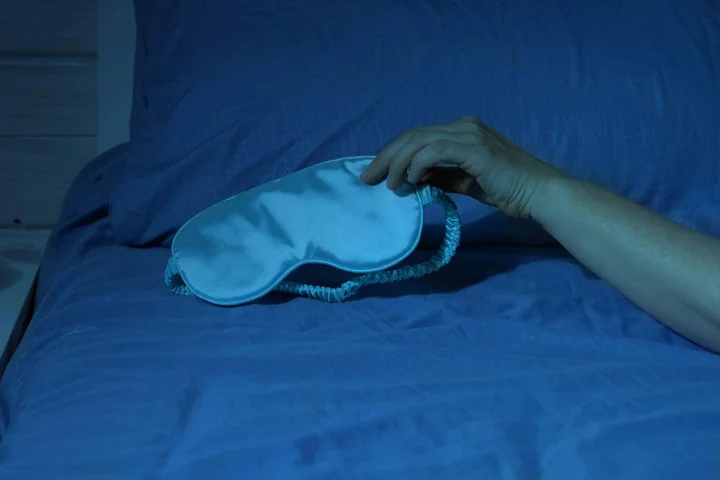
Middle-aged people who skip on sleep won’t see cognitive benefits of exercise
Middle-aged people not getting enough sleep are less likely to see the benefits of exercise when comes to protecting against decline in skills such as memory and thinking, scientists have said. Researchers from University College London (UCL) found that those in their 50s and 60s who performed regular physical activities but slept less than six hours a night had a faster decline in these skills overall. The team found that after a decade, their cognitive functions – such as attention, memory and learning – were the same as those who did less physical activity. The researchers said their study, published in journal The Lancet Healthy Longevity, highlights the need for sleep to protect against cognitive decline as people get older. Lead author Dr Mikaela Bloomberg, of UCL Institute of Epidemiology & Health Care, said: “Our study suggests that getting sufficient sleep may be required for us to get the full cognitive benefits of physical activity. “It shows how important it is to consider sleep and physical activity together when thinking about cognitive health. “Previous studies examining how sleep and physical activity might combine to affect cognitive function have primarily been cross-sectional – only focusing on a snapshot in time – and we were surprised that regular physical activity may not always be sufficient to counter the long-term effects of lack of sleep on cognitive health.” The World Health Organisation already identifies physical activity as a way to maintain cognitive function, but interventions should also consider sleep habits to maximise long-term benefits for cognitive health Prof Andrew Steptoe For the study, the team looked at data from the English Longitudinal Study of Ageing (Elsa) from nearly 9,000 people aged 50 and over. Their cognitive function was assessed over a period of 10 years with various memory and verbal fluency tests. Questionnaires were also used to assess how long they slept and whether this was less or more than six hours. People were also asked about their levels of physical activity. At the start of the study, those who were more physically active also had better cognitive function regardless of how long they slept. However, this changed over the 10-year period, with more physically active short sleepers in their 50s and 60s experiencing more rapid cognitive decline, the researchers said. But for people aged 70 and over, the benefits of exercise on cognitive function were maintained, despite short sleep, the team added. Co-author professor Andrew Steptoe, of UCL Institute of Epidemiology & Health Care, said: “It is important to identify the factors that can protect cognitive function in middle and later life as they can serve to prolong our cognitively healthy years and, for some people, delay a dementia diagnosis. “The World Health Organisation already identifies physical activity as a way to maintain cognitive function, but interventions should also consider sleep habits to maximise long-term benefits for cognitive health.” Read More 8 best kids’ bunk beds that are fun and functional Nurture your health and wellbeing this season The best holidays to book for August, from beach breaks in Portugal to stays on an Italian lake More travelers get cozy with glamping, even amid high costs People who sleep very late may die earlier due to unhealthy habits, study says
2023-07-06 13:28
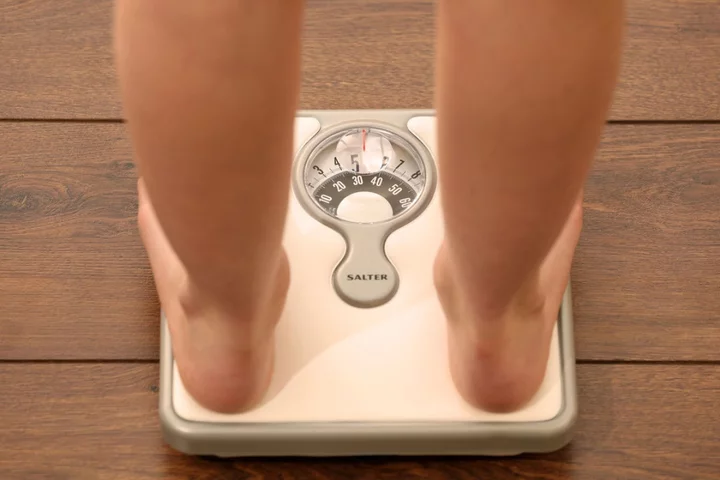
Being overweight ‘linked to 18 cancers’ in under-40s
Being overweight as a young adult can increase the risk of developing 18 cancers – more than have been previously linked with the disease, researchers found. Previous studies have shown that people who are overweight or obese have a heightened risk of a number of different cancers including breast, bowel, kidney and pancreatic. Now excess weight has also been linked to leukaemia, non-Hodgkin lymphoma, and among never-smokers, bladder and head and neck cancers in a large new study. The authors said these cancers have not previously been “considered as obesity-related cancers”. Our findings support public health strategies for cancer prevention focusing on preventing and reducing early overweight and obesity Study authors And that the impact of obesity on cancer is “likely underestimated”. The new study, published in Nature Communications, saw researchers examine data on more than 2.6 million Spanish adults aged 40 and under who were cancer-free in 2009. Researchers examined the body mass index (BMI) scores throughout the lifetime of people involved with the study, saying that previous research investigating the link between weight and cancer has used single BMI scores. The people in the study were tracked for nine years to see whether they developed cancer. Some 225,396 were diagnosed with cancer during the period studied. The Spanish researchers found that those who were overweight or obese in early adulthood – aged 40 and under – appeared to have an increased risk of cancer. Those who were overweight or obese for a longer period also appeared to have a higher risk. Our own evidence shows that maintaining a healthy weight throughout life is one of the most important things people can do to reduce their cancer risk, and early prevention in adulthood is key Dr Heinz Freisling, one of the study’s co-leaders Overall, some 18 cancers were linked to excess weight. The authors wrote: “This study shows that longer duration, greater degree, and younger age of onset of overweight and obesity during early adulthood are positively associated with risk of 18 cancers, including leukaemia, non-Hodgkin lymphoma, and among never-smokers, head and neck, and bladder cancers which are not yet considered as obesity-related cancers in the literature. “Our findings seem to indicate that longer exposures to overweight and obesity (with or without accounting for the degree of overweight and obesity), as well as developing overweight and obesity at younger ages in early adulthood might increase cancer risk. “Our findings support public health strategies for cancer prevention focusing on preventing and reducing early overweight and obesity.” Dr Heinz Freisling, from the International Agency for Research on Cancer and one of the study’s co-leaders, said: “The results of our study support a re-evaluation of the cancer burden associated with overweight and obesity, which currently is likely underestimated.” Commenting on the study, Dr Panagiota Mitrou, director of research, policy and innovation at World Cancer Research Fund, said: “This large study has future public health implications since additional cancers, such as leukaemia and non-Hodgkin lymphoma, have been shown to be linked with overweight and obesity. “Our own evidence shows that maintaining a healthy weight throughout life is one of the most important things people can do to reduce their cancer risk, and early prevention in adulthood is key.” Read More Study says drinking water from nearly half of US faucets contains potentially harmful chemicals Up to 10,000 Britons could take part in cancer vaccine trials People with signs of bowel cancer should be offered a £5 ‘poo test’ before invasive bowel investigations Nurture your health and wellbeing this season What diet drinks don’t have aspartame in them?
2023-07-06 13:21

Instagram Unveils Threads App, a Threat to Musk’s Twitter
Meta Platforms Inc.’s Instagram officially unveiled Threads, an app designed as a direct rival to Twitter, launching the
2023-07-06 12:56
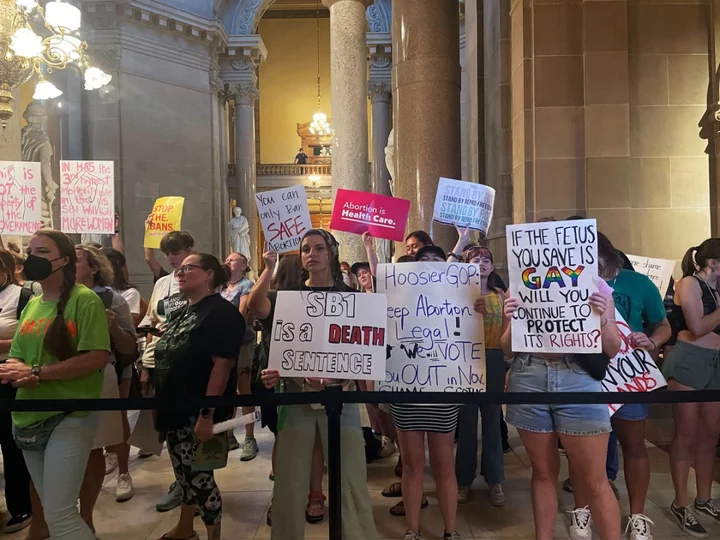
Abortion numbers in Indiana drop amid ‘fear and uncertainty’ of possible state ban
The number of abortions being performed in Indiana has fallen significantly in advance of the implementation of the state’s abortion ban at the beginning of August, state reports showed. Indiana, for now, remains one of a handful of states in the Midwest that does not have any major restrictions on abortion. But that is about to change, following a state Supreme Court ruling that the ban passed by the Republican-controlled state legislature last year does not violate the state constitution. That ban is now set to take effect on the first day of next month, at which point abortion will be almost completely banned in the state. The Associated Press first reported on the falling abortion numbers. It’s a seismic shift from last year, when the number of abortions performed in Indiana increased by 22 per cent – the numbers were boosted by patients from states like Kentucky and Ohio who travelled to the state to receive care after their home states passed bans. Of the 9,529 abortions performed in Indiana in 2022, 1,827 people came from other states to receive care. But the month-by-month numbers tell a somewhat different story. The monthly abortion rate dropped by a third or more in the final months of last year as the state’s abortion ban briefly took effect before it was blocked by a court order. This year, in advance of the looming ban, the number of abortions being performed in the state has continued to fall off. Observers believe that decline has happened in part due to the fact that people are fearful and anxious about the looming ban. “We have seen a lot of fear and a lot of misunderstanding of patients who believe that abortion access has been restricted and isn’t available in Indiana,” Dr Amy Caldwell, an Indianapolis obstetrician who performs abortions for Planned Parenthood, said last week. She said anxiety has increased among those who do not understand the legal battle taking place in the state. Two of the seven clinics that provide abortions in Indiana, a Planned Parenthood facility in Indianapolis and a Whole Woman’s Health Center in South Bend, also reported performing no abortions during the first three months of the year. The Whole Woman’s Health Center has closed, while Planned Parenthood cited staff training issues for its gap in care. That facility told the Associated Press that it is now performing abortions again. Indiana residents may soon, however, have to travel to other states to receive abortion care. Abortion remains legal in neighbouring Illinois and Michigan as well as Minnesota and Pennsylvania further afield. It also remains legal for the time being in Iowa, though a possible special session of the state legislature could change that later this year. The splintering of the abortion landscape following the reversal of Roe v Wade by the Supreme Court last year has created a scenario in which certain areas of the country lack access to abortion care while the status quo in other areas has remained largely unchanged. Every state in the southeast, for instance, has passed an abortion ban – though South Carolina’s ban for now remains blocked in court. Read More Iowa's Republican governor calls a special legislative session to revive abortion restrictions Ohio man guilty of raping a 9-year-old who traveled for legal abortion gets life sentence US prepares for potential end of Roe v Wade - live When will there be a Roe v Wade decision? Why these prosecutors are refusing to enforce anti-abortion laws
2023-07-06 12:29

Best Early Prime Day Smart Thermostat Deals: Save Now on GE, Google Nest, More
Amazon Prime Day is a week away, but there are already a host of deals
2023-07-06 04:59
